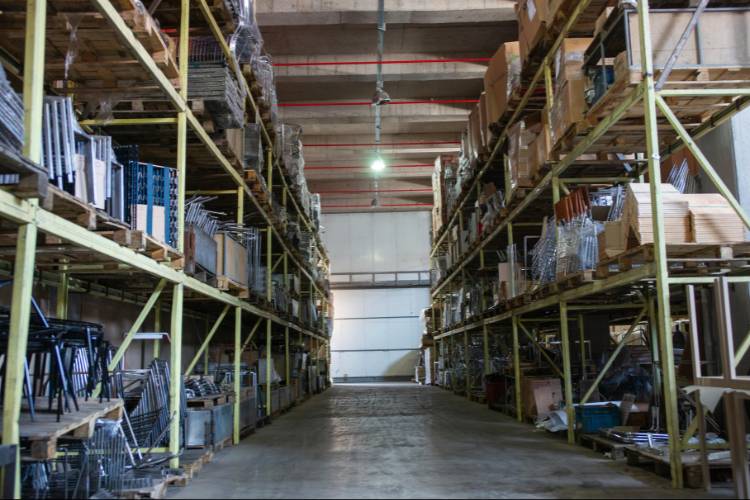Every time Billd releases our annual Subcontractor Market Report, we ask subs about their favorite way to buy materials. And every year, a clear favorite emerges: supplier terms. It’s no contest either. In the 2024 report, 92% of subs reported using terms; over 77% use them more than any other option. Suppliers offer a much-needed service, and subs are happy to use it. That said, even the best services can leave room for improvements.
Material financing is an alternative to terms that’s been gaining traction the last few years — but how does it compare to the tried-and-true option? We’ll dive into the pros and cons, a lot of which you might not know, about both supplier terms and material financing, and why one may offer a host of new benefits for your business.
Why Suppliers Would Prefer Not to Offer Terms
We’ll let you in on a secret: If suppliers could get by without offering terms, they would.
Suppliers offer terms to be flexible with their subs and ultimately get more materials off the shelves. But offering terms is a logistically heavy-lift, with lots of work and red tape that goes on behind the scenes. It forces a supplier to suddenly operate like a financial entity: getting the customer set up with credit, credit insurance, public bonds, trade references, and chasing down payments when a customer is late. Plus, there are always a few awkward conversations when they can’t extend terms to someone.
Offering terms distracts from their core business model. They’d rather be doing what they do best: selling materials. Getting paid up front by every customer is the ideal, but they offer terms because they don’t think that can be a reality for everyone. Not to mention, just about everyone will use 30-day terms, but no one will pay on that day. The supplier bites the bullet on that.
Terms Also Have Limitations for Subs
Although terms may not be great for suppliers, if they’re necessary to you as a sub, you may still push for terms to be available. It’s just business, and you need terms to get the ball rolling on that next project. But here’s the thing: you may not need to rely so heavily on only supplier terms.
Despite how useful terms can be, they have a set of disadvantages for the sub as well. For example, if and when you don’t pay on day 30, suppliers may, understandably, hold back additional purchases on your entire account. While this comes from a need to protect their business, it also means that if you can’t make the payment, you jeopardize your ability to finish the entire project (and potentially others).
In a creative effort to avoid this, some subs will throw the payment on their credit card to extend another 30 days, which is what we call “stacking terms.” But that’s just as dicey because you’re accruing interest. You then have to keep track of all these terms, and it takes a lot of paperwork. More importantly, it eats up your credit limit, preventing you from reserving your bank credit lines for non-material purchases.
We ask you: Why go through all that trouble when you can just use material financing from Billd and get 120 days to pay for your materials off the bat?
The Mutual Benefits of Material Financing for Both Supplier and Sub
Although terms have been incredibly useful in the past, material financing affords both subs and suppliers a host of benefits that can’t be ignored.
- Cash Discounts – This is a huge, win-win aspect of material financing that suppliers can’t offer when you opt for terms. With terms, you force your supplier to wait a month or more to see payment on those materials — the same way you wait for month(s) on end for the GC to pay you. Cash flow is king, so the sooner you have money in your pocket, the better. The same goes for your supplier. And that’s something they’re willing to incentivize. If you pay upfront and in full, like you can with material financing, the supplier is often very willing to offer lucrative discounts on the amount you’re purchasing. Those discounts stack up over time, and equal huge savings for your company that pad your bottom line.
- Peace of Mind that the Job Stays on Schedule – If you use supplier terms and those 30-day invoices hit when you don’t have the money, you put yourself and the supplier in an awkward position. They may have no choice but to withhold future material deliveries, which could throw a wrench in your project timeline. This risk can be avoidable when using material financing.
- Getting to Work with More Suppliers – Not every supplier can offer terms, and if you rely on terms, you limit yourself to exclusively working with the suppliers who do. With material financing in your toolbox, you can work with just about any supplier because you’re paying upfront and in full. More suppliers could mean better quality materials, or less potential for supply chain delays, all of which leads to more quickly completed projects and shorter DSO.
- Becoming Your Supplier’s Best Customer – It’s simple. Suppliers like subs who pay cash in full on every purchase — something material financing enables them to do. Unlike terms, there’s zero credit risk to them. By building a strong payment history, there’s a chance you’ll develop greater leverage with your supplier. For example, they might be more likely to fulfill rush orders or expedite deliveries.
Material financing has slowly established itself as a rock solid alternative to the time-honored tradition of supplier terms. With both these options at your disposal, it’s fair to ask which one you should use. To learn more about material financing and how it works, visit billd.com/contractor-materials-financing. To get started with enrollment, visit billd.com/start-here/.







